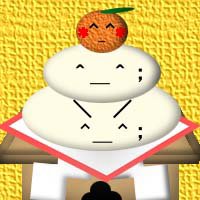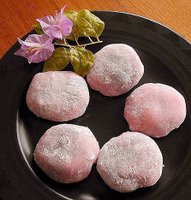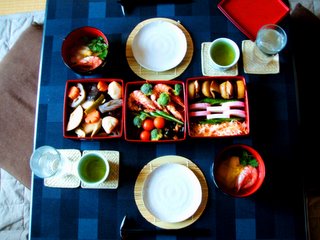
Last year, I traveled to so-called “sunny California” to celebrate the holidays with my family. The weather was perfect: blue skies, warm cozy temperatures, and cool breezes… the week before I arrived, that is. During my two week vacation (my first in California), the sun only emerged from the damp and dreariness a handful of instances. Family time was great but the weather hindered our options. It was also during this trip that I announced my intensions to marry, something I wanted to do personally.
This year, I planned to remain in Japan to celebrate the dawning of the new year. Unlike the in the States, the focal point of celebrating New Years is not on its eve. The celebration is recognized over the first three days of January, although the equivalent to “spring cleaning” is done to freshen up for the new year, followed by eating “long life noodles” on December 31st (oddly enough, also an Italian tradition- just a guess, but perhaps it began with the Chinese, who concocted the noodle). The following days are typically time spent with family, especially grandparents, not unlike Christmas in the west; stores are closed and streets are empty- on day one at least.
January 1st is marked with a special meal, osechi, consisting of a variety of vegetables, rice, and fish, along with miso soup followed up by macha (green tea), and mochi (soft rice cake).
 Traditionally, mochi was made by husbands and wives who, after steaming large quantities of sweet rice, placed it into a huge granite bowl, resembling a large herb mortar, while her partner whacked it with a sledge hammer-sized, wooden mallet, producing a soft, doughy mass. Still a popular activity on the countryside, most suburbanites today lack the space for conducting such an endeavor, settling for a store bought version. In either case, it’s quite delicious. Most families, secular and religious, traditionally visit a shrine as well- the one place where large pockets of people can be found.
Traditionally, mochi was made by husbands and wives who, after steaming large quantities of sweet rice, placed it into a huge granite bowl, resembling a large herb mortar, while her partner whacked it with a sledge hammer-sized, wooden mallet, producing a soft, doughy mass. Still a popular activity on the countryside, most suburbanites today lack the space for conducting such an endeavor, settling for a store bought version. In either case, it’s quite delicious. Most families, secular and religious, traditionally visit a shrine as well- the one place where large pockets of people can be found.The remaining days are spent mainly in hiatus or going out with family and friends to karaoke, bowling, and the like. Unfortunately, for me, I was still battling the flu, that by this time had attacked my lower back, leaving me restricted primarily to my bed- I didn’t leave home for a week!
 I did manage to stand up long enough to throw together a sweet potato pie, but it wasn’t easy and I paid dearly for it the next day. One tip I discovered to greatly enhance the flavor of baked sweet potatoes (although fine by themselves also):
I did manage to stand up long enough to throw together a sweet potato pie, but it wasn’t easy and I paid dearly for it the next day. One tip I discovered to greatly enhance the flavor of baked sweet potatoes (although fine by themselves also):  break off some cinnamon stick and toss it into a covered baking dish, along with an inch of water, and bake for about an hour- amazing. As I wasn’t good for much more, Tsugumi made her debut osechi- I couldn’t imagine anything better!
break off some cinnamon stick and toss it into a covered baking dish, along with an inch of water, and bake for about an hour- amazing. As I wasn’t good for much more, Tsugumi made her debut osechi- I couldn’t imagine anything better! After dinner, I made my way back into bed, where I laid for the next two days, reading Dostoevsky’s The Idiot, slowly recovering from the last waning remnants of the flu. My biggest regret, of course, was not being able to spend the time with the extended family, which Tsugumi largely made up for, al-humdulilah.
FAQ: How is that the Japanese New Year is on January 1st if it’s based on the Chinese calendar? Answer:
Along with many aspects of Japanese culture, traditionally, the calendar is based on the Chinese version, which identifies New Year’s Day as the "Spring Festival", beginning after the second new moon, following the winter solstice, hence, is also lunar based. After the Chinese were toppled by the British opium cartels and during the time in which the Age of European Imperialism was ravaging the world, the Japanese turned from China to Europe for inspiration (ironically, later returning Manchuria to colonize it themselves). To make a long story short and keeping to the subject in question, the Japanese kept the Chinese Zodiac but adopted Gregorian timeline. To further complicate things, however, the numerical calendar year corresponds to the number of years the current emperor has reigned. So, while, according to the Christian calendar, 2006 officially began on January 1st, year 18, specifically, Heisei 18, of the emperor’s reign also began.

1 comment:
Wow! What an endeavor Zain! Trying to read Dostoevsky wilst you are ill? Will you please not worry about your mailings until you are properly well! Thank you!
I was curious actually about the recent current events in Japon regarding the slaying of one Japanese citizen by a member of the American military. Such a horrid act! What is the media fare of this debaucle? Am distressed if this creates any kind of repercussions for you.
On another note, I have decided to take the LSAT in February - so will keep you posted in that endeavor.
And alas, have you and Tsugumi decided what destination life will take you?
Cheers my friend!
Post a Comment